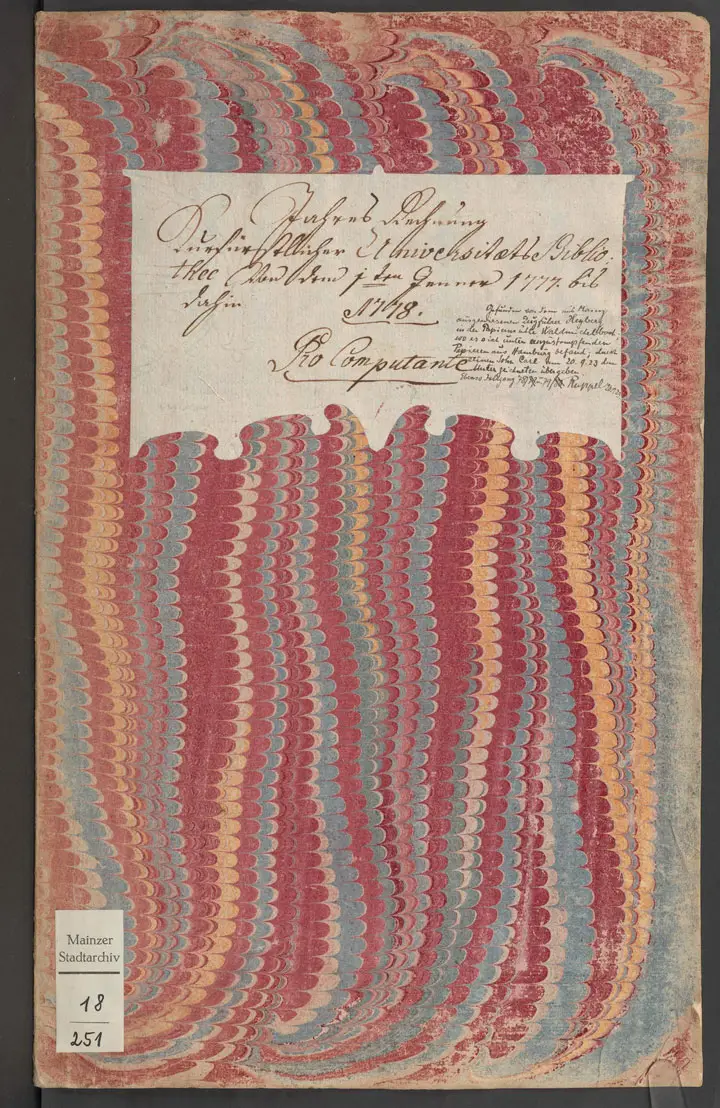Digitization in terms of this concept is understood to mean the retrospective creation of digital versions of analog media or physical objects from galleries, libraries, archives, and museums. This includes materials such as books, photographs, audio documents, objects from collections, and more. The further processing and supply of digital copies for use is also seen as an aspect of digitization.
The digitization services offered by the University Library are aimed at research and teaching at Johannes Gutenberg University Mainz and at institutions cooperating with the university. In particular, the focus is on the external partners located at the research location that is Mainz and on regional alliances such as the Rhine-Main Universities. Another important area of work is cooperation within the framework of digitization projects that serve as a reference or are beneficial for the technical development of the University Library.
The University Library also offers digitization on order as part of its general service portfolio.
Principles of Digitization

- In accordance with the University Library’s inventory retention guidelines, the library’s collection of unique or rare holdings is being completely digitized. This includes the entire collection of 16th century German prints as well as those from the 17th and 18th centuries, provided the latter have not yet been digitized as part of national projects.
- JGU related materials relevant to research are being digitized, including the holdings of the University Archives and the JGU collections.
- The reason behind retro-digitization is the long-term preservation and provision of cultural heritage.
- All digitization work complies with recognized quality standards. This applies both to the technical quality of the digital copies in accordance with the DFG code of practice, and to their indexing. Metadata is generally collected in established reference systems. Connectivity to higher-level infrastructures is a crucial goal. This applies especially to the central national and European infrastructures.
- All digital copies and metadata from the University Library are available for free reuse on a permanent basis and without access restrictions, in accordance with the principles of open science. Embargos on the provision of public domain works are also avoided as far as possible and only imposed in case of justified exceptions.





